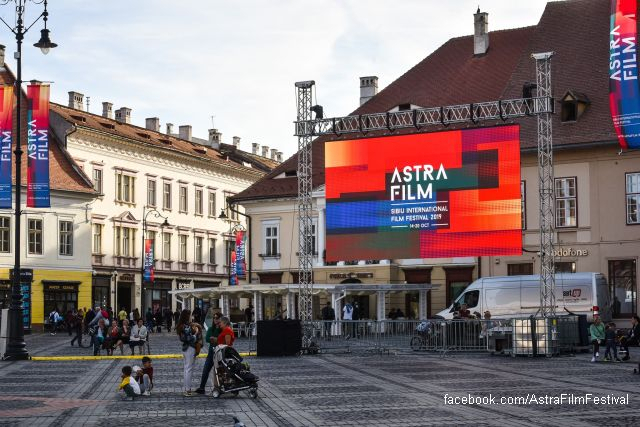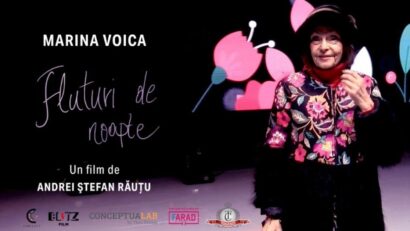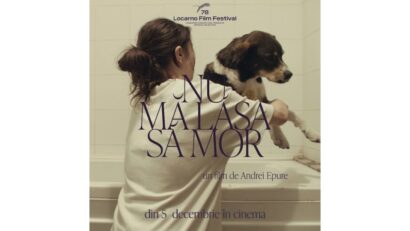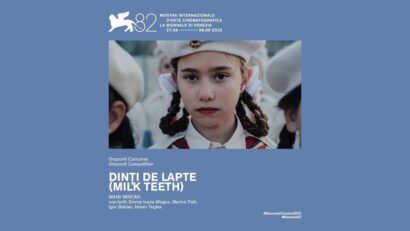The Astra International Film festival in Sibiu
Romanian reality revisited by award-winning documentaries

Corina Sabău, 26.10.2019, 14:02
The Astra International Film festival in Sibiu has
reached its 26th edition. Held over October 14 and 20, 2019, the
festival had no less than 20 production screened in theaters across the city;
the productions focused on Romania because of their plot, or because they were
directed by a Romanian filmmaker. Thirteen of them were included in the festival’s
‘Romania’ competition. According to the organizers, the productions QUOTE cover the small-scale, intimate history,
as well as History with a capital ‘H’, while through the themes they tackled,
filmmakers have struck the most sensitive chords of Romanian society. These
productions dare filmgoers to have a deeper understanding of the country, from
its making, as early as 1918, to the trying years of the dictatorship and the
phenomena that proliferated in the three decades that have passed since the Revolution,
such as migration or corruption UNQUOTE.
Alex Brendea has a rich experience as a film editor. With Profu/Teach,
Alex made his debut as a documentary filmmaker.
Alex Brendea:
What I like about the documentary is the fact that it offers
more freedom as compared to the feature film. Which means you have more time on
your hands for your characters, the team is smaller than that of a feature
film, everything is more intimate and, if you will, you can be more spontaneous
and more creative. Just to give you an example, while working on a feature film
you don’t have that much freedom to make the changes you want to make, but you
can do that for a documentary. While working on a documentary, you can make
major changes from one day to the next, you can decide to change the shots, to
film something you planned beforehand. As for a feature film, you have your
shots planned already, you are aware that what comes next for you is the shooting of
a medium close-up, or a large one. In a documentary, that comes as something a
lot more spontaneous, you don’t know what your character will do next, or what
may intervene in the whole story.
The documentary directed by Alex Brendea tells the tale of a
math teacher in Bistrita who decides to pull out of the official education
system and opens a private school in his own flat.
Alex Brendea:
Actually, the teacher’s name is Dorin Ionita,
but everybody, all his pupils called him Teach, and that’s what his name has been,
ever since. I met him when I was an 11th grader in high-school, he
was my Math teacher after school, which means I went to his place to take
private lessons, even though I wanted to pursue the Film Faculty as early as my
high school years. I remember I was impressed by him from the very beginning,
when I first stepped into his house I saw he turned one of his rooms into a
regular classroom, in the other room there was a motorbike whose parts were
disassembled and placed very meticulously on the floor, and I realized I was in
front of a very special man, and that’s how I thought about making a documentary about
him. I appreciated him a lot for the fact that he resigned from the system in
order to make his own match class, and because he was so dedicated to that
idea.
The Golden Girl is a documentary made by Denisa Morariu Tamas
and Adrian Robe. It was shot by Cristian Tamas, and explores a dramatic episode
in the history of Romanian gymnastics. We recall that in the 2000 edition of
the Sydney Olympics, Andreea Raducan fought really hard to take back her gold
medal.
Denisa Morariu Tamas:
We have a media background, the three of us,
we’re journalists. So our film is rather closer to the TV documentary, a genre
we have been working on since 2011. It is an information-centered documentary,
blending story into investigation. And the moment we also started working with
HBO Europe, whose support for us was very important, we have become even more
careful with the observational aspect, which means you need to be very keen on
your characters as you are observing them. The documentary is second nature for
us and I like that uncertainty the genre has in store for you, you never know
what is going to happen.
One of Romania’s top-notch gymnasts, Andreea Raducan, walked away
with the Olympic title at the Sydney Olympics 2000. However, the title was officially withdrawn from her three days later because she tested positive for a chemical ingredient
included in a wretched cold pill she had been given by the physician of the
national gymnastics team.
Denisa Morariu Tamas:
As for our documentary, the
Golden Girl, we started off with this mindset, that of retrieving Andreea’s
medal. We also had lawyers who offered Andreea support, they examined the
Switzerland file, but there was nothing they could do, unfortunately, the deed
had been written off, more than 10 years had passed. One of the interesting
things about our documentary is that we got ourselves a character who seems
perfect in front of the camera and what we found difficult was to be able to
detect Andreea’s moments of weakness, to find the human being behind the
champion. We intended to make a film about that trauma of losing a medal,
something she is not aware of just yet. The documentary also tells the tale of
a generation in gymnastics. As compared to that moment, Sydney 2000, the
situation has changed a lot, if we take a look at recent results, Romania came
in 22nd according to the final World Championships rankings.
The Astra International Film Festival in Sibiu
includes, for the recently-held 26th edition, a selection of the
recent 126 productions made in 45 countries worldwide. So entering the
award-winning race for the festival were 47 titles, screened in 4 sections of
the competition. Completing the program were dozens of noteworthy films,
grouped in 12 special thematic programs according to the topics they broached.
Productions tackle topics that for us have become more distressing these days,
irrespective of sex, nationality or age.






























